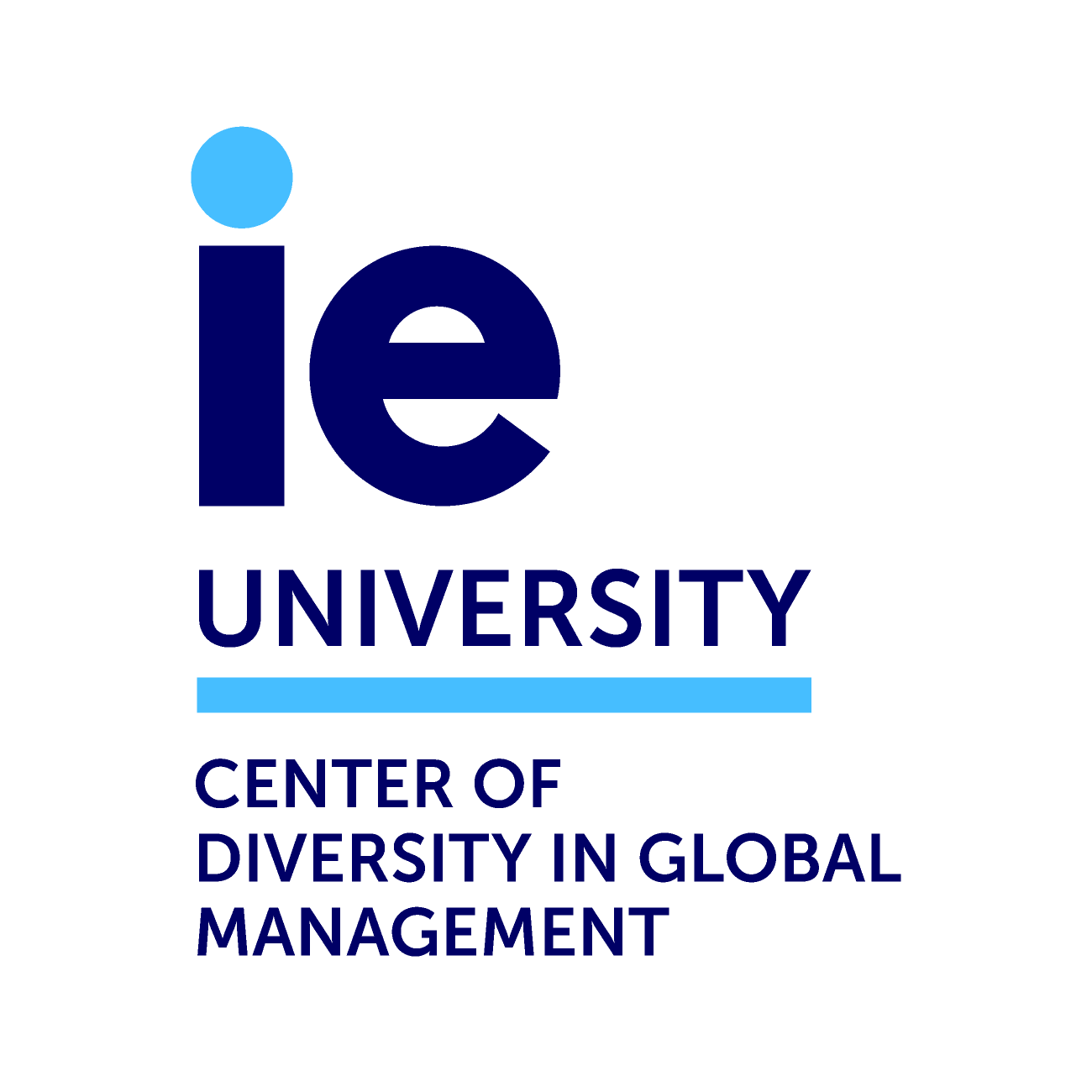[:en]
MULTIMEDIA CASE STUDY: Training and Mentoring Program
for Women Led- Business in Liberia, DRC, Rwanda, Senegal,
Mozambique & South Africa
This program has taken place in six African countries, many post-conflict, such as Liberia, DRC,Mozambique, Rwanda, Senegal and South Africa. It’s goal is to assist in the transformation of African women’s businesses into consolidated companies, generating employment and economic benefits in their communities. In this case we will focus on three examples of high value added
products and services produced by African companies started and led by women.
This training program is designed and run by the IE Center for Diversity in Global Management in collaboration with the NGO FAS and AECID. The overall objective was to assist in the capacitybuilding of African businesses in their respective economic areas.
The specific objectives were:
* Increase the body of academic knowledge.
* Building capacities: Mobilizing women entrepreneur.
* Foster creativity and self-reliance of the entrepreneurs.
* Assist women in developing their businesses in order to create job opportunities in their
country.
* Fighting poverty and contributing to Africa’s development, allowing them to develop their
market.
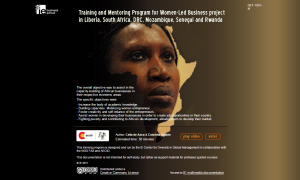
MULTIMEDIA IE MENTORING PROGRAM
Mentoring is a process in which a person with relevant experience and/or knowledge (mentor) generously and unselfishly shares this with another, in a trust-based relationship. The purpose of the relationship is the personal and professional development of the other person (mentee) by providing him or her with the help and support necessary to reach his or her objectives.
This case provides the conceptual frameworkfor the mentoring process; it has been supplemented with various experiences of mentors and mentees.The mentor, mentee and the person in charge of the mentoring program should
fix beforehand the expectations, so they can be treated accordingly. Through this simulation of
the entire process, which begins with the reflection of the individual, the mentor and the mentee can discover the implications of their decisions and monitor them.
This case about Mentoring also shows the management of a wide variety of profiles and experiences that can serve as a great support to both students and professionals, through a careful process of selection and assignment beforehand.

RESEARCH: Cultural Diversity in International Business
The Spanish-Moroccan Business Context
The Center for Diversity at IE Business School
in collaboration with ONA Foundation and the
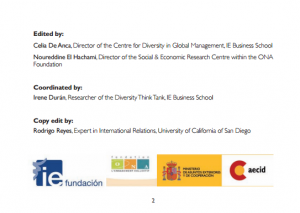
support of Averroes Committee and the Spa-
nish Agency for International Cooperation
(AECI) published a best practices guide to
integrate diversity into HR management and
provide guidance for Spanish companies esta-
blished in Morocco and Moroccan companies
established in Spain.
RESEARCH: Plurality in the mediterranean. The case of gender.Plurality in the Mediterranean a case of Gender
The Center for Diversity at IE Business School 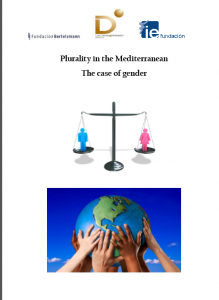
in collaboration with ONA Foundation and the
support of Averroes Committee and the Spa-
nish Agency for International Cooperation
(AECI) published a best practices guide to
integrate diversity into HR management and
provide guidance for Spanish companies esta-
blished in Morocco and Moroccan companies
established in Spain.
BOOKS PUBLISHED
Managing Diversity in the Global Organization: Creating New Business Values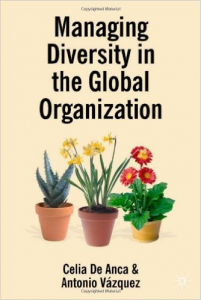
Celia de Anca, Antonio Vazquez Vega
Global diversity is a key issue facing all companies and organi-
zations. This book shows how this is a strength that can provide
the tools needed to attain the characteristics increasingly de-
manded by business corporations and environments. Diversity
has enormous benefits and opportunities. This challenging and
exciting book provides a practical framework and a ground-brea-
king, direct approach.
Diversity 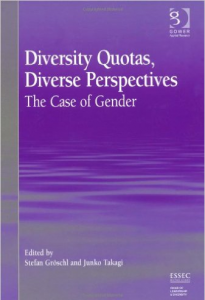 Quotas, Diverse Perspectives: The Case of Gender
Quotas, Diverse Perspectives: The Case of Gender
New edition Edition
Legislative and institutional affirmative and positive action poli-
cies have been with us for some time, particularly in Anglo Saxon
countries. One of the major issues they are intended to address
is gender inequality. The book offers a global perspective on the
subject and expands the discussion of it beyond Anglo-Saxon
contexts.
Beyond Tribalism. Managing Identities in a Diverse World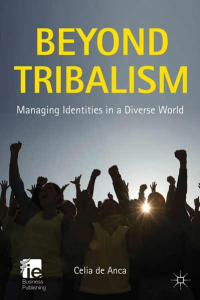
Celia de Anca
In the past, neo-tribalism in a Western context has been feared
as leading to blindness or irrationality. In today’s business world,
tribalism represents a conscious separation of the individual ego
for the good of the community. This is the key to understanding
the success of the most innovative businesses in the 21st cen-
tury.
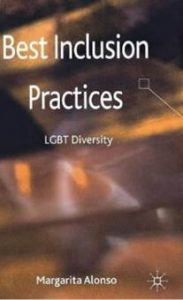
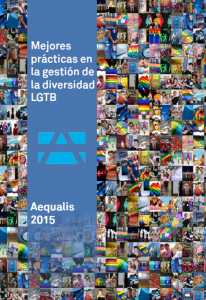
Money and Identity within the Framework of the European Union, in MONEY, PAYMENT SYSTEMS AND THE EUROPEAN UNION. vol. , no., pp. 58-76.
Dec 1, 2016 – Cambridge Scholars Publishing
Author: Celia de Anca
It has traditionally been agreed that money performs three functions: it is a medium of exchange; a unit of account; and it is a way of storing wealth. A less frequently discussed function is how it can provide a sense of belonging or identity.
The establishment of the European central banks in the 19th century was a process carried out in parallel with the creation of European nationalisms, by which nation states looked for unifying elements to bond a society, through a constitution, a language, and a currency, which would often feature national symbols on the newly issued banknotes. In the challenges ahead for European integration, the role of a community-based money culture based on a sense of belonging is often neglected, but will arguably be an important factor. The present article builds on the idea of money and identity in Europe, focusing particularly on new community-based complementary currencies to understand how money can contribute toward creating a sense of belonging, whether through a common European or a community-based identity within EU cultural pluralism.
See publication: www.cambridgescholars.com/download/sample/63487
Searching for Women on Boards: An Analysis from the Supply and Demand Perspective
May 2016 Corporate Governance: An International Review. Volume 24, Issue 3, pages 371–385, May 2016
This paper aims to create a comprehensive framework for understanding the presence of women on boards and indicating existing gaps to be filled by new research in the future. This framework will help future researchers in analyzing specific instruments and to measure its efficiency in eliminating gender unbalance. Depending on the approach taken for research, the theoretical backgrounds used vary. While on the supply side the predominant theories are gender role theory, gender self-schema, and work-family conflict, the demand side is based on gender discrimination, human and social capital theory, resource dependence theory, and institutional environment theory.
See publication: http://onlinelibrary.wiley.com/doi/10.1111/corg.12141/abstract
Why Hiring for Cultural Fit Can Thwart Your Diversity Efforts
Apr 25, 2016 HBR. ORG
Author: Celia de Anca
The article described how an excessive focus on psychometric tests and automated screening in hiring for talent can lead to an “over fitting” which can have as consequence homogeneity. Diversity and inclusion only make sense when real difference of oppinion and views exist and is properly managed.
See publication: https://hbr.org/2016/04/why-hiring-for-cultural-fit-can-thwart-your-diversity-efforts?utm_source=twitter&utm_medium=social&utm_campaign=harvardbiz
Diversity and Tribal Thinking in the Collaborative Organization
>Coauthors: Salvador Aragón and Celia de Anca
Professors Celia de Anca and Salvador Aragón examine how collaboration has become one of the watchwords of the digital age, and how co-creation, co-sharing, co-working, co-design, and co-thinking are now key elements in a new form of economic activity. This is commonly referred to as the collaborative economy, with people increasingly organizing their lives on a collective basis, mixing their private and professional existences, and operating in small groups akin to traditional clans that can just as easily function on a neighborhood basis or at the other end of the world, as though the global and local were just one continuum. This collective mind-set has changed our traditional understanding of diversity, expanding into new cultural identities in which, in addition to identities of origin, new, aspirational ones emerge. Anca and Aragón call this “tribal behavior” and look at how it can be channelled into economic activity, integrating it in the process into systems to successfully explore and exploit new business scenarios, as well as developing new business models.
See publication: https://www.bbvaopenmind.com/en/article/diversity-and-tribal-thinking-in-the-collaborative-organization/
Women in Islamic banks in the United Arab Emirates: tradition and modernity, In Stefan Gröschl and Regine Bendl (Eds.). Managing Religious Diversity in the Workplace. Gower. 2015
Dec 1, 2015 Gower. 2015
Author: Celia de Anca
Women in Islamic banks in the United Arab Emirates: tradition and modernity, In Stefan Gröschl and Regine Bendl (Eds.). Managing Religious Diversity in the Workplace.
This chapter analyses the role of women who choose to work in a growing financial industry that is close to their religious beliefs – Islamic banking. The case of the United Arab Emirates (UAE) is particularly relevant since there are a growing number of women working in both conventional as well as Islamic banks.
The analysis of women in Islamic banks will also allow us to deconstruct two common stereotypes: (1) the idea that women in general are not suited for leadership in the financial industry, and (2) the idea that Muslim women do not have an active role in the economic activities of their countries.
See the publication: https://www.amazon.com/Managing-Religious-Diversity-Workplace-Examples/dp/1472441060
Our Emotional Attachment to Local Currencies
Nov 5, 2014 HBR.org
Author: Celia de Anca
>Classical economics argues that money performs three functions: to give value to tradable goods; as a means of payment; and as a reserve of value. However there is an important and often overlooked, fourth function: to provide a sense of belonging. Money provides a sense of identity. Complementary Currencies, such as The Brixton Pound or the Bristol Pound performs the first two functions well: it gives a value to tradable goods; and it can be used as a means of payment. It is probably not so good at the third function, as a value reserve — the complementary currencies tend to lose value over time. But most of all, what the local currencies provide is a sense of belonging. It is about being one of a tribe.
See publication: https://hbr.org/2014/11/our-emotional-attachment-to-local-currencies
Let your Employees Bring Their Interest To Work
Aug 29, 2014 – Harvard Business Review Blog
Coauthors: Celia de Anca and Salvador Aragón”>
In the work on diversity and innovation we have conducted in the past years, we came to understand some of the keys of this new mindset, and how some companies, are successfully using the tribal thinking for business. The movement can be understood from social engineering by which the social groups were define in advance, to an open and flexible context by which individuals choose and change their affiliations by their individual drive. Both new and old structures leave in parallel and companies have to identify when to use former structures, and when new techniques should be organized.
See publication: https://hbr.org/2014/11/our-emotional-attachment-to-local-currencies
The Media Impact of Board Member Appointments in Spanish-Listed Companies: A Gender Perspective
July 2014, Volume 122, Issue 3, pp 425–438
Coauthors: Celia de Anca and Patricia Gabaldón
There is an ethical debate about the effect of gender diversity of top management
teams on organization. This study aims to contribute to this debate through the
analysis of the effects of gender diversity of the top management teams (TMTs) in the
relationship between knowledge combination capability and organizations’ innovative
performance. We use a sample of 205 small and medium-sized enterprises (SMEs)
belonging to the sector of Spanish technology-based firms (TBFs). Our results indicate that gender diversity moderates positively the relationship between knowledge combination capability and innovation performance. Implications for theory and practice, including ways to contribute to a more equal gender distribution and benefits of gender diversity in top management positions, are discussed.
See publication: https://link.springer.com/article/10.1007/s10551-013-1768-1
Female Directors and the Media: Stereotypes of Board Members.
Jan 3, 2014 – Gender in Management: An International Journal, Vol.29 (6)(2-2).
Coauthors: Calia de Ancaand Patricia Gabaldon
>See publication: http://www.emeraldinsight.com/doi/full/10.1108/GM-07-2013-0079
Leadership in Multi Identity Contexts: A Mediterranean Framework, in Uncertainty Diversity and the common Good.
Jul 2013 – Gower Publishing
Coauthors: Celia de Anca, Salvador Aragón and Concepción Galdón
The article develops a conceptual framework for leadership under conditions of complexity. The paper examines the hypothesis that identification flows from the individual to the organization and vice versa through various communities—voluntarily chosen or externally assigned—with which each individual feels connected. This connection occurs on the basis of identity categories acting as affinity elements that are different for each individual-group relationship. In such a scenario, organic leadership emerges as a natural organizational interface between the person and the organization. The paper explores the mechanisms through which identity flows in different cultural contexts using the Spanish-Moroccan example.
See publication: https://www.researchgate.net/publication/299221479_Leadership_in_Multi_Identity_Contexts_A_Mediterranean_Framework
Women on Corporate Boards of Directors in Spanish Listed Companies, In Vinnicombe, Singh, Burke, Bilimoria and Huse (Eds.). Women on Corporate Boards of Directors.
2008 Cheltenham: Edward Elgar Publishing Limited.
Managing Diversity in the Global Organization.
>2007 London: Palgrave Macmillan
Coauthors: Celia de Anca and Antonio Vázquez Vega
Global diversity is a key issue facing all companies and organisations. “Managing Diversity in the Global Organisation” embraces diversity and shows how it provides the tools needed to attain the values and characteristics increasingly demanded by business corporations. The book includes analyses of topics like diversity in business management; diversity in the historic perspective of business management; gender, culture and personality: the values provided by diversity; policies and best practices; diversity management in today’s companies; and questions that merit global reflection.
This book “underlines the crucial importance of managing diversity not only for business leaders but also for executives in charge of any activity with a major geographical reach. An accelerated pace of technological change has so compressed space and reduced times that the world’s cultures are intermixed to a degree hitherto unknown. The authors’ analysis of this development demonstrates clearly how powerful the benefits are, and how dangerous the pitfalls, in managing global business in this entirely new environment”, explains Andrew C. Hess, Professor of Diplomacy and Former Academic Dean at the Fletcher School of Law and Diplomacy.
Mujer Árabe Y Empresa: Tradición Y Modernidad. La Deuda Olvidada De Occidente: 291-308.
2004 Fundación Ramón Areces ED.
[:]
